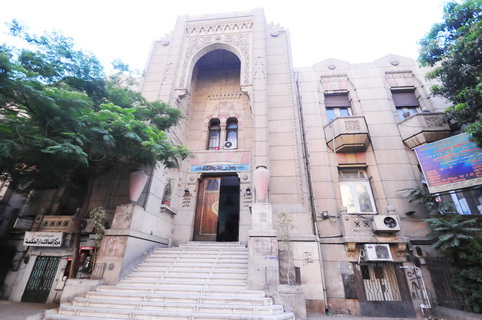100 scientists, 22 policymakers meet under AU auspices to debate solutions in Alexandria
CAIRO: More than 120 African scientists and politicians met in Alexandria over the weekend under the sponsorship of the African Union (AU) to increase the role of scientific innovation in solving the continent s problems and establish dialogue between the two sides.
The first Conference of African Scientists and Policy Makers aimed to create a list of recommendations to be submitted for endorsement to the science and technology ministers meeting later on this month and consequently to the African Union Summit scheduled for January. As of press time, final recommendations had yet to be released.
Despite assertions of their determination to find solutions to the continent s ongoing struggles with poverty, illiteracy, high mortality rates and grave deficiencies in most basic health and social services through science and technology, most attendants found it difficult to agree on priorities and methodology. Some proposed the establishment of a high science and technology research institute to encourage diasporas to come back, others promoted the use of intermediate science, while others spoke of fighting the continued colonization of the continent.
Where there s a will, there s a way, said Miami University mathematics professor Aderemi Kuku, a Nigerian ex-pat. But our countries have never demonstrated this will.
Kuku pointed to the continent s persistent problems despite possessing a wealth of natural resources and human capital. With 880 million inhabitants, 96 percent of the world s diamonds, 85 percent of platinum and chromium reserves, 50 percent of gold and 30 percent of uranium supplies, more than 300 million people still do not have access to clean water, 30 million are infected with HIV and nearly 40 million are at daily risk of starvation.
Sadeg Faris, CEO of eVionyx and a Libyan ex-pat, said the numbers are proof that the continent continues to be colonized by the developed world. Faris s New York-based company specializes in developing metal energy alternatives to lessen dependence on fossil fuels.
Africa, in particular, and many other developing countries are technological colonies, Faris told The Daily Star Egypt. If you look around you in Africa, you will not find anything that was invented or developed here. That s because the continent is forced to sell its raw materials cheaply in order to buy expensive technologies developed in the West. It s a vicious cycle . but we have to recognize the problem first.
Faris said the solution is to develop a currency that African countries can trade with on a level playing field, and that lies in technological innovation.
Hassan Sassi, a Libyan engineer who is now the design manager of a $19 billion school construction project in the Los Angeles school district, agreed with Faris. In order to entice Africa s scientists to come back, he proposed the establishment of a science and technology research institute, to be funded by AU member states that would serve as a meeting place for the continent s best minds.
But others such as Baha Bakry, Cairo University professor of environmental planning and urban ecology, argued Africa is not yet ready to invest in higher science and can best solve its problems by developing intermediate technologies. Bakry also opposed the conference s use of success stories from other further-developed countries such as China, India and Brazil because they lack the context of the African political and socio-economic environment.
Sustainable development in Africa does not need sophisticated science, said Bakry. It needs engineers to build roads and waterways. More democracy and peace can create sustainable development.
Nagia Essayed, AU commissioner for human resources, science and technology, said, despite the differing opinions, the conference had succeeded in initiating an important debate. Success in pursuing scientific advancement now depends on AU members to invest in the cause upon discussion at January s summit in Abuja, Nigeria.
To change the face of Africa, this is the chance, Essayed said. We might not have enough financial resources, but unless we put our own money into this, we won t get others to believe in us, she added referring to global finance institutions such as the World Bank.

